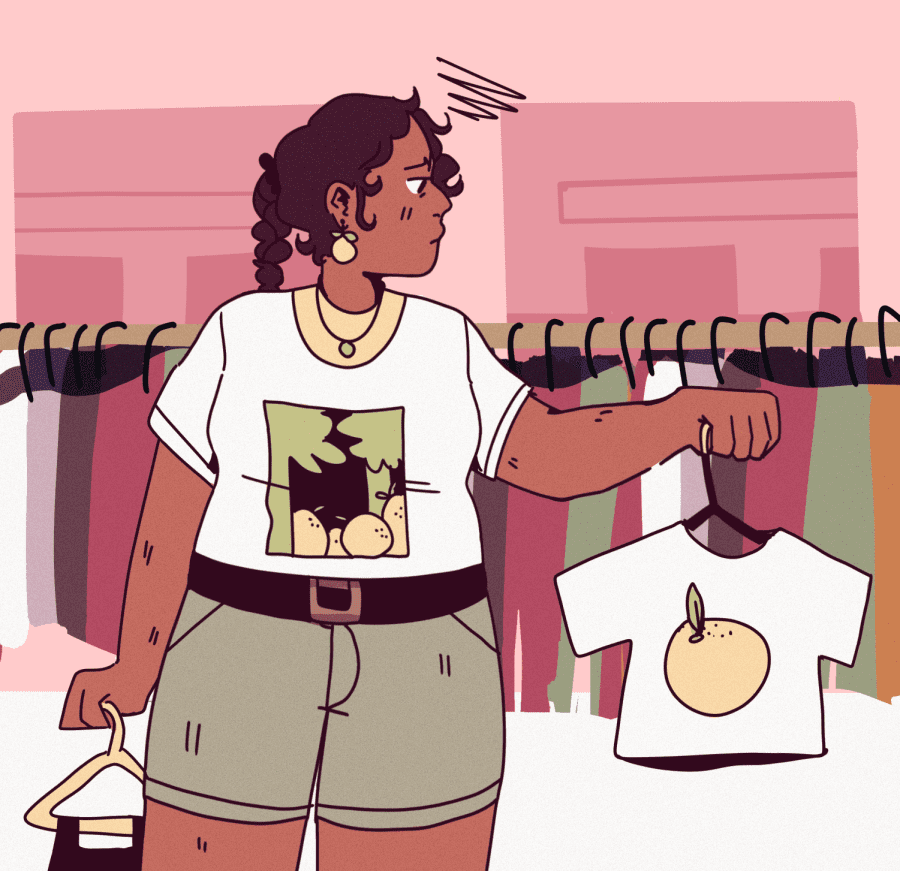Opinion | Popular clothing brands lack size inclusivity
Jun 20, 2022
Making the trip to the mall with your friends and shifting through different shops together — maybe even finding your new favorite piece of clothing — is often a favorite pastime for teens and young adults. For some though, it is a burden.
I am not talking about those who dread shopping for the boringness of it. Too often, people struggle to find clothing that fits their body type. In recent years, the term “clothing inclusivity” has been used to describe clothes that are considerate of not simply all bodies, but of all identities too.
One of the biggest issues with clothing is sizing. Although some have made an effort to sell a wider array of clothing sizes, many popular brands today still lack a complete spectrum.
A study published by the Centers for Disease Control and Prevention in 2018 found that there has been an increase in weight and a decrease in height for both men and women since 1999. With the U.S. population increasing in average body size, some brands adopted plus-size clothing collections. However, the public was not satisfied with their efforts. Plus-size lines, when first introduced, had several issues.
Primarily, customers noted the deficit of fashionable plus-size clothing. Plus-size lines often differed from the style of standard clothing lines and provided fewer options to choose from. Additionally, customers found that the plus-size clothing they purchased was too loose or failed to properly fit their form. Ironically, there was also an issue with which sizes were included; what was once defined as ‘plus-size’ now describes the size of the average American woman.
Get The Daily Illini in your inbox!
In response to these issues, many retailers have popped up with the intent of creating better plus-size options, specifically for women. One of the internet-claimed best plus-size clothing brands is ASOS. Unlike some other brands, ASOS does not lack in the fashion department for their plus-size collection. Along with this, their clothing fits people of all forms, with an entire line dedicated to accentuating women’s curves.
However, some brands still abstain from accommodating their customers. Brandy Melville is a very popular store among young women, but they carry no size variation whatsoever. Their one-size-fits-all policy actually applies only to those who are typically a size small. And it’s no accident, either — the CEO of Brandy Melville has made offensive claims about the physical characteristics of people he wants to wear the brand.
When widespread brands create an exclusive sizing system, it can be very harmful to the minds of young girls. Young women, who are very susceptible to stereotypes, may believe that their bodies must fit into a certain size, leading to unhealthy and dangerous habits.
Large retailers should use their influence for good instead of evil. Target is a prime example of a reputable chain that attempts to cater to their customers rather than make their customers cater to them. Not only are they inclusive, but they are often more affordable than other brands. This comes as a blessing for those deprived of accessibility to clothing.
The struggle for inclusive clothing has come a long way in the women’s department, but it remains deficient in men’s. Circulating talk about the portrayal of more diverse female models also brings up the conversation of male models. Stereotypically, male models have “a six-pack or (are) ultra skinny.” Including a wider range of sizes and styles for men is essential to allow comfort and self-expression.
Shopping should never be a strain. Everyone should be able to enjoy a day at the mall with their friends, without fretting over if clothing will fit them in the trendy stores they walk through. Inclusive clothing is not a want, but a need by society.
Maggie is a sophomore in LAS.






